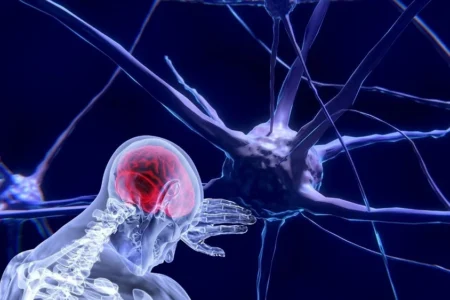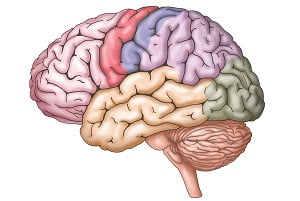Early Onset of Parkinson’s Disease
- Updated on: Jul 23, 2024
- 4 min Read
By
- Published on Dec 20, 2018


Parkinson’s disease
Parkinson’s disease is a progressive deteriorating disease of the central nervous system associated with loss of cells in the particular area (the substantia nigra) of the brain that produces dopamine, a neurotransmitter that helps to regulate movement. The disease is most often diagnosed in people in their old age but can affect people at younger ages as well. Those who are diagnosed before the age of 50 are said to have early onset Parkinson’s disease and constitute between 10 to 20 percent of all Parkinson’s cases.
According to the American Parkinson Disease Association, early-onset Parkinson’s disease occurs when a doctor diagnoses the disease in a person bearing 21 to 50 years of age. Read about diagnosis of Parkinson’s.
Early onset Parkinson’s symptoms
Non-motor symptoms are usually the first symptoms encountered by people with early-onset Parkinson’s disease. These are called early onset Parkinson’s symptoms and may include:
- depression or anxiety
- constipation
- loss of smell
- orthostatic hypotension (decrease in blood pressure within in three minutes of standing)
- trouble sleeping
- bladder problems
- change in sex drive
- increased saliva production
- fatigue
- cognitive issues
- fluctuations in weight
- visual disturbances
Causes of early-onset Parkinson’s disease
For most people with Parkinson’s, the disease is thought to be caused by a combination of underlying aging, environmental and genetic factors. Inheritance is considered to play a central role in early-onset Parkinson’s disease.
Genetics of Parkinson’s
People who have both early-onset disease and a family history of Parkinson’s are more susceptible to carry mutations in certain genes associated with the disease. These include:
Alpha-synuclein (Park1)
A metamorphosis or mutation in one copy of the Alpha-synuclein gene is known to cause early onset Parkinson’s.
Parkin (Park2)
Inheriting two copies of the mutated Parkin gene causes early-onset Parkinson’s, however inheriting one copy amplifies the development of the disease.
Leucine-rich repeat kinase 2 (LRRK2)
Various unusual mutations can occur in the LRRK2 gene, raising a person’s risk of developing early onset disease.
NUS1 gene (dehydrodolichyl diphosphate synthase subunit)
According to a study, mutations affecting the NUS1 gene are linked to a considerable increase of the risk (11 times higher) of developing Parkinson’s disease.
Researchers conducted a detailed genetic analysis aiming to detect de novo mutations associated with the early-onset Parkinson’s disease. They collected samples from 39 patients with early-onset Parkinson’s disease, their parents, and 20 unaffected siblings. Researchers identified 12 genes carrying de novo mutations, including MAD1L1, NUP98, PPP2CB, PKMYT1, TRIM24, CEP131, CTTNBP2, NUS1, SMPD3, MGRN1, IFI35, and RUSC2. These genes are known to exhibit in two brain regions affected in Parkinson’s disease, known as the stratum and substantia nigra respectively, and might be functionally relevant to early-onset Parkinson’s.
The study, “Coding mutations in NUS1 contribute to Parkinson’s disease,” is available in Proceedings of the National Academy of Sciences. Researchers using biological network analysis illustrated that all the identified genes may share similar biological functions, and may act together to increase the risk of developing Parkinson’s.
Researchers also examined the role of the NUS1 gene in Drosophila, by deleting the equivalent gene which shares 44% similarity with the human NUS1. They observed that this deletion induced the loss of dopamine-producing nerve cells and, as a result, brain dopamine levels gets lowered, which are the two main hallmarks of Parkinson’s disease.
From this study, it was concluded that de-novo mutations might contribute to early-onset Parkinson’s disease and identify NUS1 as a candidate gene Parkinson’s disease.
What can you do if you have early onset Parkinson’s disease?
Work with your healthcare professional to make a plan to stay healthy. This might include the following:
- set up a regular exercise plan to delay further symptoms and signs of early onset Parkinson’s
- have a discussion with family and friends who can provide you with the support when needed
- get-together with a medical social worker to talk about how Parkinson’s may affect your life
- educating yourselves about the disease, its symptoms, and treatments is important
- identifying a medical team to help slowing down the progression of the disease. This could include a primary care physician, neurologist, psychiatrist or a physical therapist.
- discussing the diagnostic approaches and early onset parkinson’s test with your boss or colleagues and creating a plan to keep you working for as long as you desire
How early can Parkinson’s disease be treated?
Every day, researchers around the world are working to find treatments and trying to slow down the progression and harmful effects of early-onset Parkinson’s and Parkinson’s disease. While no cure presently exists, there are certain medications that may reduce the symptoms and help a person to maintain their mobility.
The treatment approach to early-onset Parkinson’s has been to lay down medications until a person’s symptoms start to affect their daily life considerably.
Conversely, the Parkinson’s medication levodopa and its alternative, including Carbidopa-levodopa, are likely to cause increased symptoms in a younger person with Parkinson’s disease. Accordingly, healthcare professionals may recommend different medications, such as:
- MAO-B inhibitors, such as selegiline (Eldepryl)
- dopamine agonists, such as ropinirole (Requip)
These drugs are associated with fewer side effects in young people as compared to levodopa.
Deep brain stimulation therapy involves embedding a tiny electrical device similar to a pacemaker into an area of the brain responsible for movement. The electrical stimulation helps a person to have better motor control related to their Parkinson’s disease.
Early onset Parkinson’s prognosis and early onset Parkinson’s life expectancy
There is no simple diagnostic test for the disease, and about 25% of Parkinson’s disease diagnoses go wrong. The disease starts out with such subtle symptoms that many doctors fail to diagnose right. Even the best neurologists can diagnose it wrongly. Parkinson’s is unique to each person. You cannot predict what symptoms you will get, and when you will get them, and how will they progress. Some people need wheelchairs soon; others may run marathons.
Parkinson’s disease itself is not fatal. It in itself may not cause death. However, as the disease symptoms worsen they can cause incidents that can cause death. For example, in some cases, problems with swallowing can cause Parkinson’s patients to aspirate food into the lungs, which causes other pulmonary complications. Loss of balance can cause falls resulting in serious injuries or death.













1 Comment
I am 60 year old who was diagnosed 24 months ago with Parkinson’s. I have severe calf pain, muscle pain, slurred speech, frequent falls, loss of balance, difficulty in getting up from sitting position, I was having a problem accepting my diagnosis, even though I’ve read every thing I can find to read. I’ve been put on Sinemet 3 times daily but it doesn’t seem to be helping. I also have difficulty writing. Getting in bed, turning over. Finally, I was introduced to Health Herbs Clinic and their effective Parkinson’s herbal protocol. This protocol relieved symptoms significantly, even better than the medications I was given. After First month on treatment, my tremors mysterious stopped, had improvement walking. After I completed the treatment, all symptoms were gone. I’m strong again and able to go about daily activities!